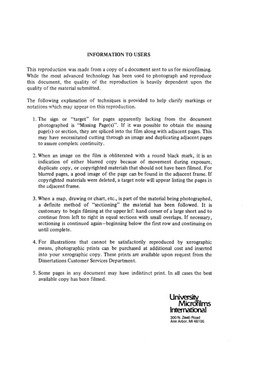| dc.contributor.author | Noever, Janet Hubly. | en_US |
| dc.date.accessioned | 2013-08-16T12:28:55Z | |
| dc.date.available | 2013-08-16T12:28:55Z | |
| dc.date.issued | 1983 | en_US |
| dc.identifier.uri | https://hdl.handle.net/11244/5133 | |
| dc.description.abstract | The first woman to lecture to women on physiology and anatomy, Mary Gove Nichols told women in 1838 to take control over their own health and advocated the Graham System which emphasized proper diet, exercise, and preventive medicine. Tying Grahamism to the hydropathic movement of the 1840s, she became a water cure physician specializing in obstetrics. Viewing pregnancy as a natural condition not an illness, she emphasized prenatal care, prepared childbirth, and early ambulation--in opposition to contemporary medical practice. She also spoke out for dress reform because current fashions were unhealthy as well as limited women's movement. | en_US |
| dc.description.abstract | A feminist foremother and passionate rebel, Mary Gove Nichols searched for a new vision of womanhood and leaped a century ahead of her time. Her fascinating career speaks to issues that concern feminism today as well as gives insight into the reform movements of the nineteenth century. | en_US |
| dc.description.abstract | Mary Gove Nichols was a fascinating woman whose multidimensional career affords provocative insights into early nineteenth century feminism. Throughout her life she struggled against the separation of spheres inherent in the Cult of True Womanhood and the Cult of Domesticity which defined the role of Jacksonian women. She challenged the concept that anatomy was destiny and sought autonomy for women. She wanted women to be self-reliant, to be physically healthy, to be economically independent, to enter sexual relationships motivated only by love, and to have control over their childbearing. To that end she was involved in many of the reforms of her day. She tried to find the feminist framework that would enable her to create a new social order in which women would be autonomous and live healthy, useful, and independent lives. | en_US |
| dc.description.abstract | She explored contemporary utopian experiments and the Free Love Movement to find options for economic and sexual freedom for women. Edgar Allan Poe included Mary Gove in his "The Literati of New York City." Her autobiographical novel, Mary Lyndon, was a passionate plea for the freedom and independence of women, and she hoped it would do for women what Stowe's Uncle Tom's Cabin had for slaves. | en_US |
| dc.format.extent | v, 348 leaves ; | en_US |
| dc.subject | History, United States. | en_US |
| dc.title | Passionate rebel : | en_US |
| dc.type | Thesis | en_US |
| dc.thesis.degree | Ph.D. | en_US |
| dc.thesis.degreeDiscipline | Department of History | en_US |
| dc.note | Source: Dissertation Abstracts International, Volume: 44-02, Section: A, page: 0557. | en_US |
| ou.identifier | (UMI)AAI8314783 | en_US |
| ou.group | College of Arts and Sciences::Department of History | |
